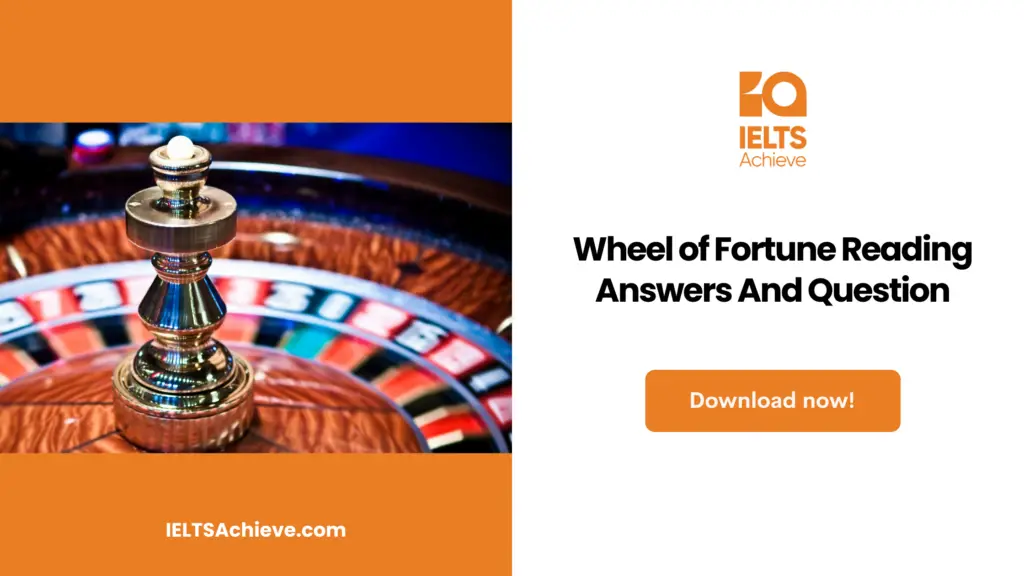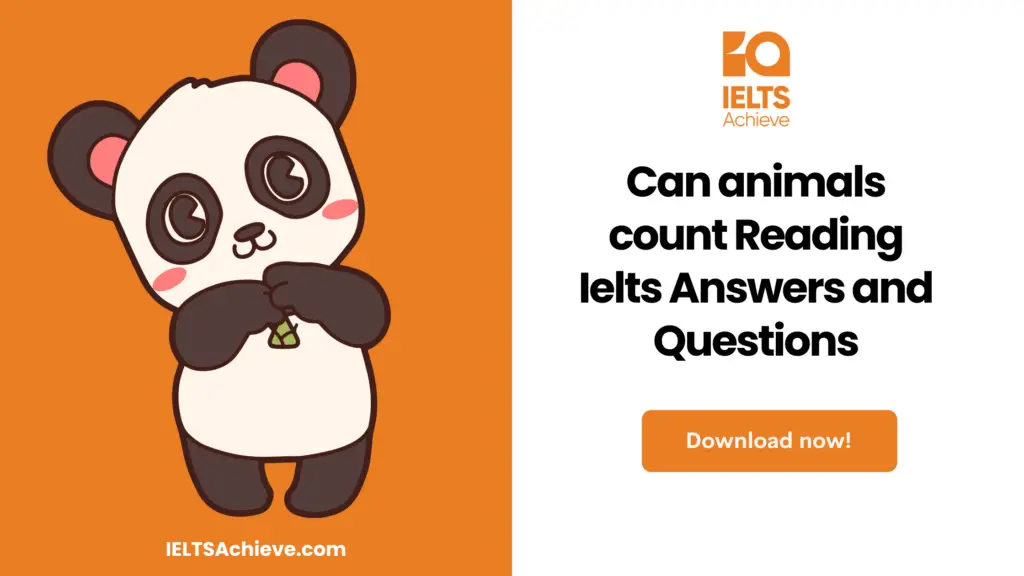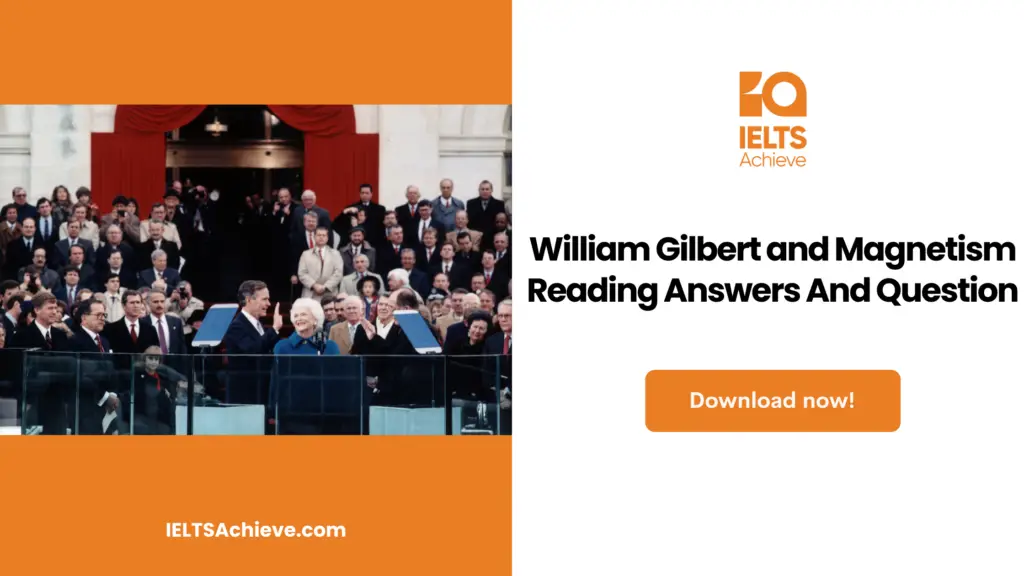The Blog post contains the following IELTS Reading Questions:
- IELTS Reading Matching Headings
- IELTS reading matching features
- IELTS Reading Multiple Choice Questions
Stay informed and prepared for success – Explore our comprehensive Reading Test Info page to get valuable insights, exam format details, and expert tips for mastering the IELTS Reading section.
IELTS Reading Passage – Wheel of fortune

Wheel of Fortune
Digital disruption and its potential impact on the entertainment industry are topics explored by Emma Duncan.
A. Once every few generations since the advent of motion pictures a century ago, a new method of marketing and selling entertainment products has taken hold. Every single one of these breakthroughs has ushered in a new era of unstoppable change in the industry, accompanied by equal parts trepidation and anticipation. One such era was heralded by the introduction of digital technology, which encoded previously analogue forms of media (such as sound and visuals) in the binary code used by computers.
B. The digital revolution and the ensuing explosion of options have been predicted for some time, so this may sound familiar. John Malone, CEO of American cable giant TCI, hailed the arrival of the “500-channel universe” in 1992. Everything, except pizzas, was about to be delivered to people’s living rooms via digital television. The technology was tested by the entertainment industry and found to be functional; however, the price tag was too high for most consumers.
C. Those 500 channels did become available, but not on televisions but on personal computers and on the World Wide Web. There were some unanticipated effects of the digital revolution on the entertainment industry. Over time, it will affect every facet of the entertainment industry, from the production of animation to the distribution of movies and the sale of music. Certainly, that much is evident. In particular, no one knows how this will impact the company’s bottom line.
D. Both risks and rewards can be found in every new technological development. They could either greatly benefit or obliterate the industry’s current players. Traditional businesses are naturally wary of cutting-edge innovations. It was a vicious cycle: Hollywood hated TV, and TV was afraid of the VCR. A Berkeley economist named Hal Varian notes that publishers have long worried that “circulating libraries” will cut into their profits. However, the entertainment industry has always benefited financially from the introduction of new technologies. As distribution channels multiply, so do the dollars, pounds, pesetas, and other currencies that can be used to pay for them.
E. However, the concerns of the established businesses may be justified. Even if new technologies don’t directly endanger people’s lives, they often end up playing different roles. The advent of television meant that movies and radio were no longer the only means of mass entertainment. Because of cable TV, broadcasters are no longer as powerful as they once were. And as the balance of power has shifted, the movie studios, radio stations, and TV networks have all been absorbed. Grand old entertainment brands have more reverberation than actual influence these days. Once the roaring lion of Hollywood, MGM has been reduced to a whisper because it is not part of one of the giants, with Paramount now owned by the cable company Viacom and Universal by the drinks-and-entertainment conglomerate Seagram. Similarly, Bertelsmann, a major German media conglomerate, now owns the RCA recording label, which was once the most influential in the world.
F. Incumbents were displaced in part because they failed to anticipate change. However, they were also subject to stricter regulations than are in place today. Earlier this decade in the United States, legislation that had barred television broadcasters from also owning programming companies was repealed, paving the way for the rise of vertically integrated corporations. Smarter entertainment industry firms remade themselves in response to increased autonomy and an appreciation of tradition. They had witnessed the plight of their forefathers who were forced to rely on a single mode of distribution. Therefore, today’s entertainment industry heavy hitters are not individual film studios, television networks, or publishing houses, but rather divisions of much larger conglomerates with in-house production and distribution capabilities.
G. Time Warner, Walt Disney, Bertelsmann, Viacom, News Corp, Seagram, and Sony are just some of the seven mega-entertainment conglomerates that have emerged as a result. Everything related to the entertainment industry, with the exception of pornography, is covered. The international crew consists of three Americans, one Australian, one Canadian, one German, and one Japanese. Christopher Dixon, head of media research at stock brokerage PaineWebber, says, “What you are seeing is the creation of a global oligopoly.”
The entertainment industry is experiencing the same downturn that hit the oil and car industries earlier this century. How cutting-edge technology will affect those formidable corporations remains to be seen.
Unlock your full potential in the IELTS Reading section – Visit our IELTS Reading Practice Question Answer page now!
Recommended Questions:
Renewable Energy IELTS Reading Question with Answer
Wheel of Fortune Reading Questions
Questions 1-8
Reading Passage has seven paragraphs A-G. Which paragraph mentions the following (Questions 1-8)? Write the appropriate letters (A-G) in boxes 1-8 on your answer sheet.
NB Some of the paragraphs will be used more than once.
- The fact that some businesses were harmed by overly regulatory government agencies.
- The future of entertainment delivery is undergoing a radical transformation.
- The Soaring Prices of New Entertainment Distribution Methods.
- Concerns about the potential economic fallout from increased media availability.
- The muddled reactions people are said to have had to technological progress.
- The fact that some businesses have benefited from the experiences of others.
- How different forms of technology can impact established companies.
- The potential danger that the digital revolution poses to established media corporations.
Ready to conquer Matching Headings questions? Click here to learn essential tips and techniques for matching headings accurately to paragraphs or sections in the IELTS Reading section.
Questions 9-12
Multiple people and organizations are mentioned by the author throughout the text.
Match the people or companies (A-E) with the points made in Questions 9-12 about the introduction of new technology.
Write the appropriate letter (A-E) in boxes 9-12 on your answer sheet.
9. Years ago, the latest technological advancements were reported in the media.
10. The remaining major entertainment bodies have lost their sway.
11. In the entertainment industry, mergers are occurring similarly to what has been seen in other fields.
12. New methods of disseminating entertainment have always threatened the status quo of the industry.
| MGM Christopher Dixon John Malone Walt Disney Hal Valarian |
Improve your performance in Matching Features questions by clicking here to access our comprehensive guide. Learn how to match specific features or characteristics with the options provided in the IELTS Reading section.
Questions 13-14
Choose the appropriate letters A-D and write them in boxes 13-14 on your answer sheet.
13. Choose the option that best captures the author’s main points about the Reading Passage.
- Those in the entertainment business need to change with the times.
- Only major media corporations can benefit from technological advancements in the entertainment industry.
- The general populace needs to stop fighting against the spread of technological advancements.
- The advent of digital technology will lead to higher earnings in the entertainment industry.
14. How does he convey his thoughts on the rise of digital culture?
- by offering one’s own conception of what constitutes technological advancement.
- through analogy with prior waves of technological advancement.
- by looking at the various media types that will be altered.
- through a study of how media corporations have adapted to the change.
Ready to improve your performance in Multiple Choice Questions (MCQs)? Click here to access our comprehensive guide on how to tackle MCQs effectively in the IELTS Reading section.
Unlock your full potential in the IELTS Reading section – Visit our IELTS Reading Practice Question Answer page now!
Recommended Questions:
Renewable Energy IELTS Reading Question with Answer
Wheel of fortune reading answers
1. F
2. C
3. B
4. C
5. A
6. F
7. D
8. G
9. A
10. C
11. E
12. B
13. a
14. b

We hope you found this post useful in helping you to study for the IELTS Test. If you have any questions please let us know in the comments below or on the Facebook page.
The best way to keep up to date with posts like this is to like us on Facebook, then follow us on Instagram and Pinterest. If you need help preparing for the IELTS Test, join the IELTS Achieve Academy and see how we can assist you to achieve your desired band score. We offer an essay correction service, mock exams and online courses.


